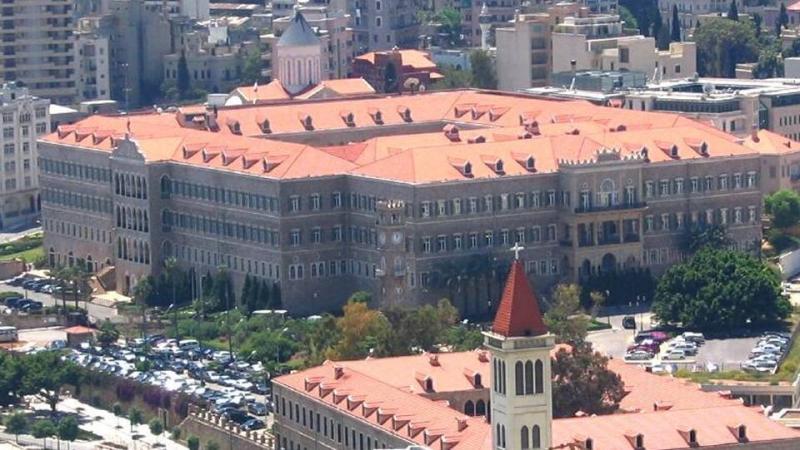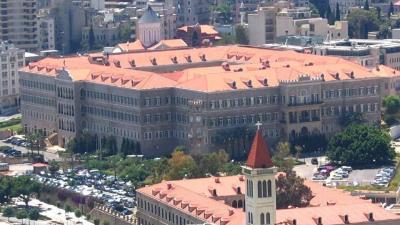While attention remains focused on U.S. President Joe Biden's visit to the region, anticipating its outcomes—especially after his absolute support for Israel was evident through his suspension of the "Jerusalem Declaration" with them—local, regional, and international reactions to Hezbollah's Secretary-General Hassan Nasrallah emerged. Nasrallah outlined the equation regarding Lebanon's oil and gas rights, calling on officials to uphold these rights and emphasizing the importance of American and United Nations recognition of them before September. Meanwhile, discussions between U.S. mediator Amos Hochstein and the Israeli side concerning the Lebanese proposal suggested that "there's more to be discussed" after Biden's visit, reflecting a somewhat negative atmosphere regarding these talks with the Israelis.
In light of these developments, it appears that in the governmental formation arena, President Michel Aoun and Prime Minister-designate Najib Mikati have managed to contain the repercussions of their recent dispute through statements from sources. This sets the stage for a forthcoming meeting to continue discussions about the proposed ministerial formation and the exchanged remarks and ideas related to it. The barriers to governmental formation were pronounced from both sides at the presidential palace and the governmental palace, reaching a peak in recent days. Each side has defined its approach to this matter, but sources closely following this issue told "Al-Jumhuriya" that the atmosphere surrounding government formation has suffered a setback that cannot be addressed merely through statements or clarifications. Even if a meeting occurs between Aoun and Mikati, which is anticipated early next week, it is unlikely to change anything as "what is written is written" and the trajectory suggests that forming a government, which seeks to merge Baabda's criteria with Serail's convictions, has become extremely difficult.
The sources added, "What neither party dares to say is that a prevailing sentiment in the country indicates there will be no government, and no one has a stake in its formation at this wasted time. The battle for the presidency has begun, and all parties have gone through the governmental entitlements; currently, the focus has shifted elsewhere as everyone looks out to sea, waiting for regional developments. There’s no time to carry out the protocols for forming a government that has become unnecessary."
However, both Aoun and Mikati contained the "war of sources" and "leaks" that have occurred in recent days concerning government formation and the powers of each in this context. First, a statement from the Media Office of the Presidency emphasized that "the urgent need today is for a fully constituted government capable of making executive decisions, rather than statements and leaks that complicate matters." It expressed disappointment regarding the insinuation that the presidency disrespects the office of the Prime Minister, noting, "What President Aoun intends to announce, he does so clearly and openly, either directly or through the Media Office." It affirmed that Aoun "has never closed the palace doors on anyone, how could he do so on the Prime Minister-designate? He has been waiting for a new approach in light of the remarks he previously made on the proposed formation." It highlighted that "the constitution clearly specifies the mechanism to be adopted in forming governments, and the President of the Republic is not in a position to relinquish his full constitutional partnership in that process."
Mikati's media office responded to the presidential statement, saying, "The President of the Council values what was mentioned in the third paragraph of the presidential statement regarding distancing from the abuses made by some close to the President of the Republic, which is not unknown to anyone. He also appreciates the President's commitment to not disrespect the position of the Prime Minister." He added, "Regarding the constitutional right of the President, the Prime Minister announced that he has presented a government formation that summarizes his communications and the discussion of it with the President; thus, the Prime Minister has never said that he wants to withhold from the President his right to express his opinion and remarks."
Baabda "appreciates" the "appreciation": Sources close to Baabda told "Al-Jumhuriya" that the President aimed in his statement yesterday to clarify many points regarding the crisis from its various aspects, especially emphasizing the constitutional principles that define his role as a partner in the formation process, a role he exercises to the ultimate conclusion. The sources expressed the hope that this would be the last time to discuss some of the leaked information from the recent period, particularly regarding the meeting date requested by Mikati and his rejection of any intention to undermine the authority and powers of the Prime Minister-designate, reaffirming their partnership in the process of government formation with open hands and doors of Baabda palace, which have never been closed to anyone, especially the Prime Minister-designate.
They also aimed to prevent some speculative claims and interpretations that try to change the objective of his positions and block any misplaced interpretations, aiming to cease the narratives and scenarios stemming from sources. The statement perhaps represents the last attempt to end this futile debate. The moment requires both night and day work to facilitate the government formation to address the series of crises afflicting the country.
In response to the "appreciation" of the Prime Minister's office statement, the sources noted, "Such a debate satisfies and benefits no one, and the required work should prevail to form the government." Along with the positive atmosphere arising from the statements from Baabda and the governmental palace, informed sources on the movement of communications told "Al-Jumhuriya": "The atmosphere between the two presidents is not good, but it is not bad; each maintains a margin for movement in respect to their positions to preserve their roles as partners in the formation process, and the problem lies elsewhere, which prevents rapid understanding. Thus, the final reading of the positions cannot be determined until Mikati returns to Beirut, where a third meeting between them will be inevitable."
"Al-Jumhuriya" learned that Mikati, still outside Beirut, continued his communications yesterday with his advisors and several ministers to follow up on public affairs and various detailed issues in preparation for his anticipated return to Beirut over the weekend.




